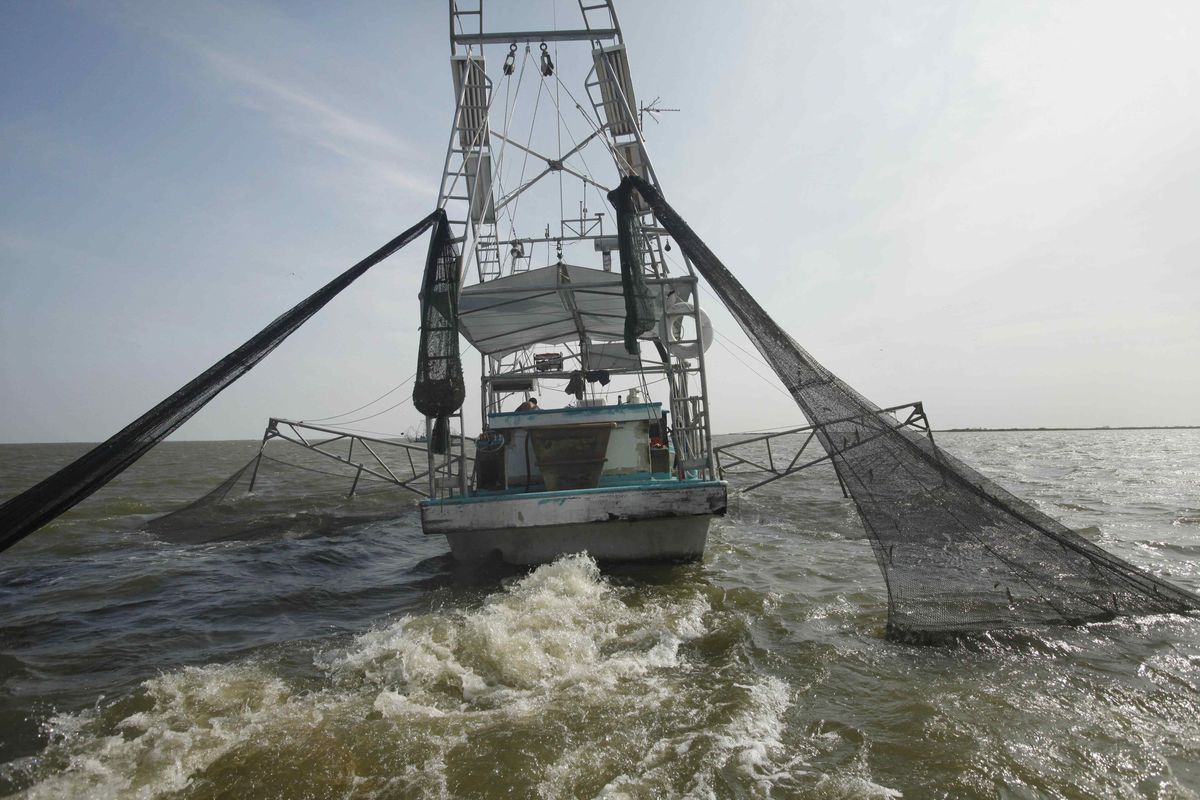Louisiana opens shrimping season
Scientists say most of the oil is still lurking in Gulf

GRAND ISLE, La. – Fishermen who spent much of the summer mopping up oil from BP’s disastrous spill got back to work as the fall shrimping season in Louisiana’s coastal waters opened Monday amid anxiety over whether the catch will be tainted by crude and whether anyone will buy it even if it is clean.
Scores of shrimpers headed out at first light, and early reports indicated a plentiful and clean catch. But a new analysis of federal estimates show the optimism may be premature about how much oil remains in the Gulf.
“We’re not seeing any oil where I’m at. No tar balls, nothing,” said Brian Amos, a 53-year-old shrimper who trawled in his 28-foot skiff, The Rolling Thunder, in a bay near Empire.
It was a step toward normalcy for many coastal towns that have been in limbo in the nearly four months since the spill shut down fishing, an economic linchpin for dock owners, restaurants and many other businesses along the Louisiana coast. Louisiana ranks first in the nation in shrimp, blue crab, crawfish and oysters, and the state’s seafood industry overall generates an estimated $2.4 billion a year.
Five Georgia scientists who reviewed the data said Monday that instead of only 26 percent of the oil remaining, as a federal report said earlier this month, it’s actually closer to 80 percent.
“Where has all the oil gone? It hasn’t gone anywhere. It still lurks in the deep,” said University of Georgia marine scientist Chuck Hopkinson. He headed the quick independent look by the Georgia Sea Grant program at the estimates the White House released.
The Georgia team said it is a misinterpretation of data to claim that oil that is dissolved or dispersed is gone.
“The bottom line is most of it is still out there,” Hopkinson told the Associated Press. “There’s nothing in the report to substantiate the 26 percent.”
Also Monday:
• Retired Coast Guard Adm. Thad Allen, who is overseeing the oil-spill crisis for the government, said it will take at least a week to permanently plug the well with mud and cement once he gives the go-ahead for the “bottom kill.” He said he is not sure when that will happen, because scientists are working on ways to perform the kill without further damaging the well.
• The Obama administration announced it is requiring environmental reviews for all new deep-water oil drilling, ending the kind of exemptions that allowed BP to drill its ill-fated well with little scrutiny.
• BP said it will give federal and state health organizations $52 million to help people dealing with stress and anxiety because of the spill.
Amos and his fellow shrimpers were working in Louisiana’s state-controlled waters, which extend three miles from shore. Shrimpers who ply those waters lost most of their spring season – which runs from mid-May to early July – because of the spill. The fall shrimping season runs from mid-August to December.
Shrimping is also open in state-controlled waters off Mississippi, Alabama, Florida and Texas. Federal waters, which are open nearly year-round for boats to trawl for bigger shrimp, remain closed to shrimping off Louisiana, Mississippi and Alabama, though some spots could open within days, depending on the results of tests.
Laboratory tests on seafood from the Gulf have shown little hazard from oil, and a test is being developed for the chemicals used to disperse the crude, though there is no evidence they build up in seafood. Still, shrimpers are worried that the public won’t want what they catch.
“I feel that we have had a bad rap on the perception of our product,” Andrew Blanchard said at his processing plant in Chauvin.